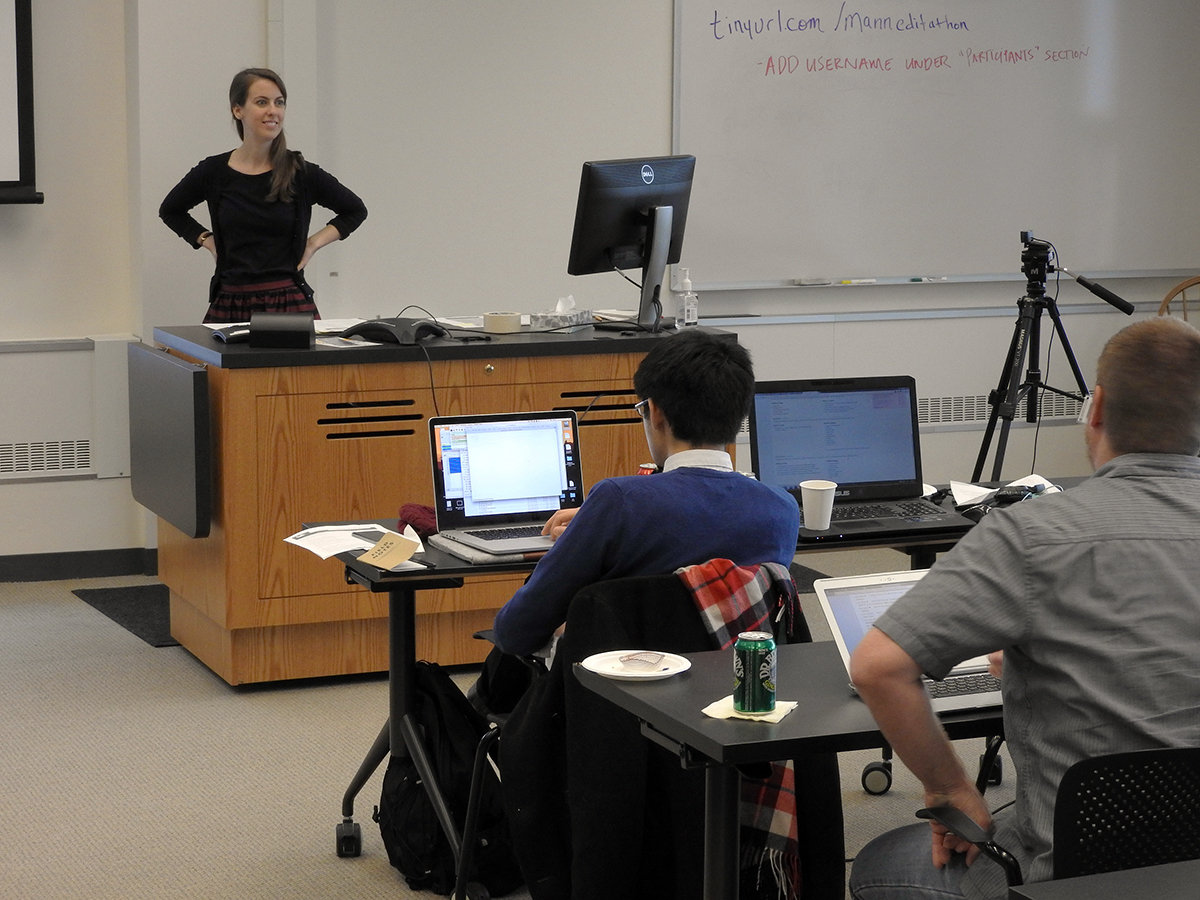Cornell takes big red pen to Wikipedia life sciences content
By Amruta Byatnal

If you can’t beat it, edit it.
That was the idea behind a March 11 event that brought students, staff and faculty together at Mann Library to improve the quality of agriculture and life sciences content on Wikipedia.
The free access site – once the scourge of academia – has become a resource that students at Cornell and universities around the world rely upon daily. Since it invites content created and edited by its users, some Cornell experts agreed that the best course of action was to use their knowledge to improve the site.
The Wikipedia Edit-a-thon held at Albert R. Mann Library welcomed participants to add new articles or strengthen existing ones on topics related to agriculture and the life sciences. Held in collaboration with University of Arizona staff and faculty members, who participated via webcast, the event aimed to improve the Internet encyclopedia’s scientific content and dispel its reputation as a sloppy resource prone to error and the opinions of its contributors.
“We thought, let’s not fight Wikipedia, but instead teach students to use it better,” said Ashley Downs, food and agriculture librarian at Mann Library and co-organizer of the event.
Participants first learned the basics in an hourlong workshop teaching the anatomy of the site and how to edit an article. From there, they plunged right into the content. During the edit-a-thon, experts volunteered their knowledge on topics from invasive species to college farms and made it freely available to hundreds of millions of Wikipedia users across the globe.
“The spirit of giving back to society by sharing the resources we have here fits in well with Cornell’s mission,” Downs said.
Elizabeth Leonard ’16 used the opportunity to start a new page detailing Cornell’s Dilmun Hill Student Farm.
“This way people can find out about new techniques; they can learn in a way they weren’t able to before,” she said.
“I am a big consumer of Wikipedia, and I feel that as Cornellians benefiting from so much information and learning, it is our duty to share it,” said the senior in the Department of Development Sociology.
Mark A. Sarvary has witnessed Wikipedia evolve from an academic pariah to a legitimate source of information. For years, the senior lecturer in neurobiology and behavior grimaced each time a student used Wikipedia to learn about a biological phenomenon. That was until Sarvary, who is also director of the Investigative Biology Laboratory, decided to stop resisting the flaws and turn his energies toward embracing the benefits.
“I can’t deny that students use Wikipedia. I use Wikipedia, so I did not want to be a hypocrite,” he said.
His fall semester course BIOG 1250, co-taught by Downs and Kelee Pacion, Mann’s undergraduate life sciences librarian, tasked students with writing and editing biology-related entries. The goal of the course, Sarvary said, is to use Wikipedia as a learning tool to develop stronger critical thinking and information literacy skills.
“It is a great way to teach scientific literacy. Instead of telling students not to rely on it, I wanted to teach them to evaluate the information, to edit and write reliable information,” he said.
While Wikipedia may not be perfect, it is undoubtedly a powerful tool, he said. He hopes his class and events like the edit-a-thon motivate students to get involved in how science is explained.
Mann Library is already pursuing that idea. In the future, Downs said the library hopes to expand the scope of the workshop through Cornell’s involvement with the Agriculture Network Information Collaborative.
Amruta Byatnal ’16 is a student writer for the College of Agriculture and Life Sciences.
Media Contact
Get Cornell news delivered right to your inbox.
Subscribe